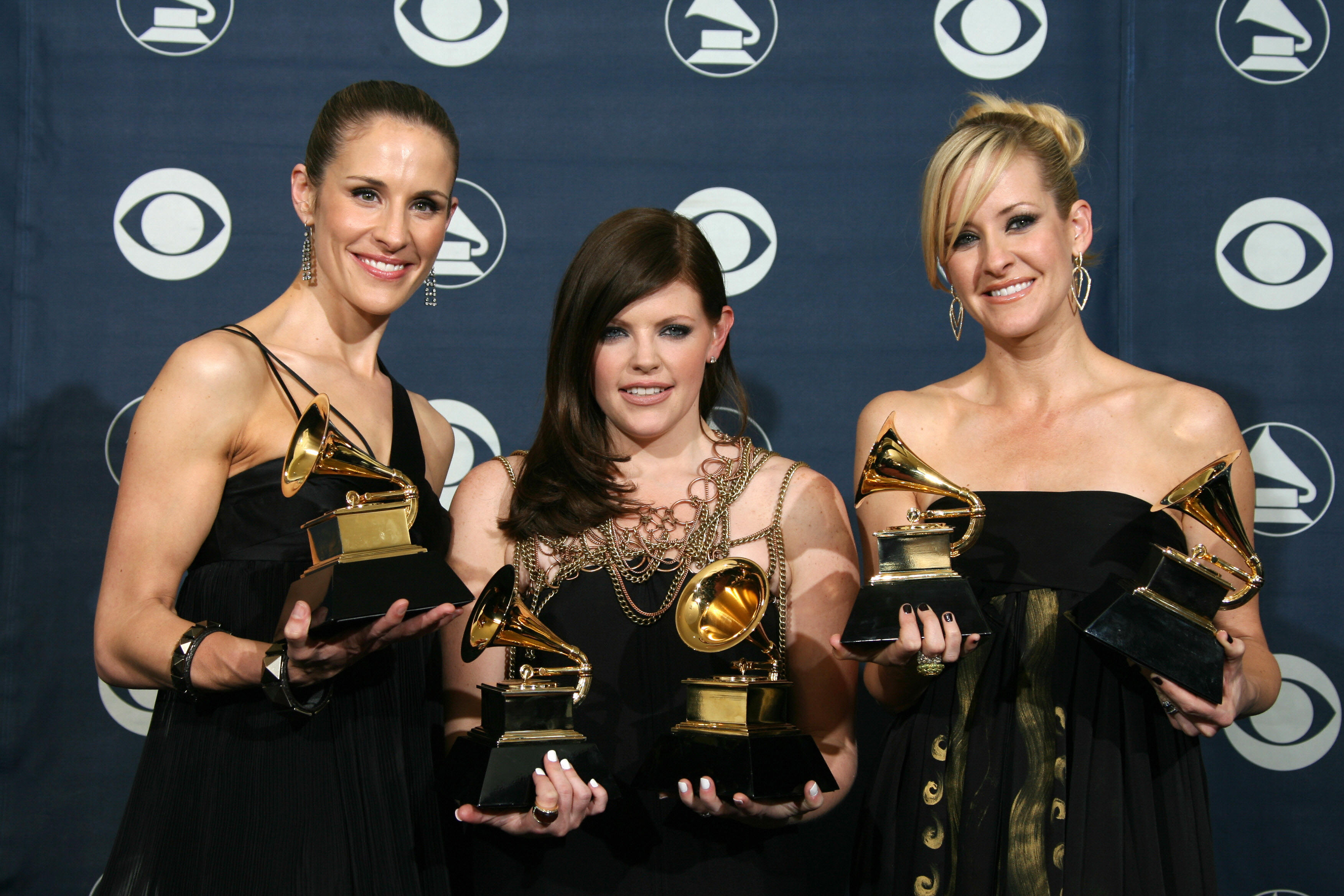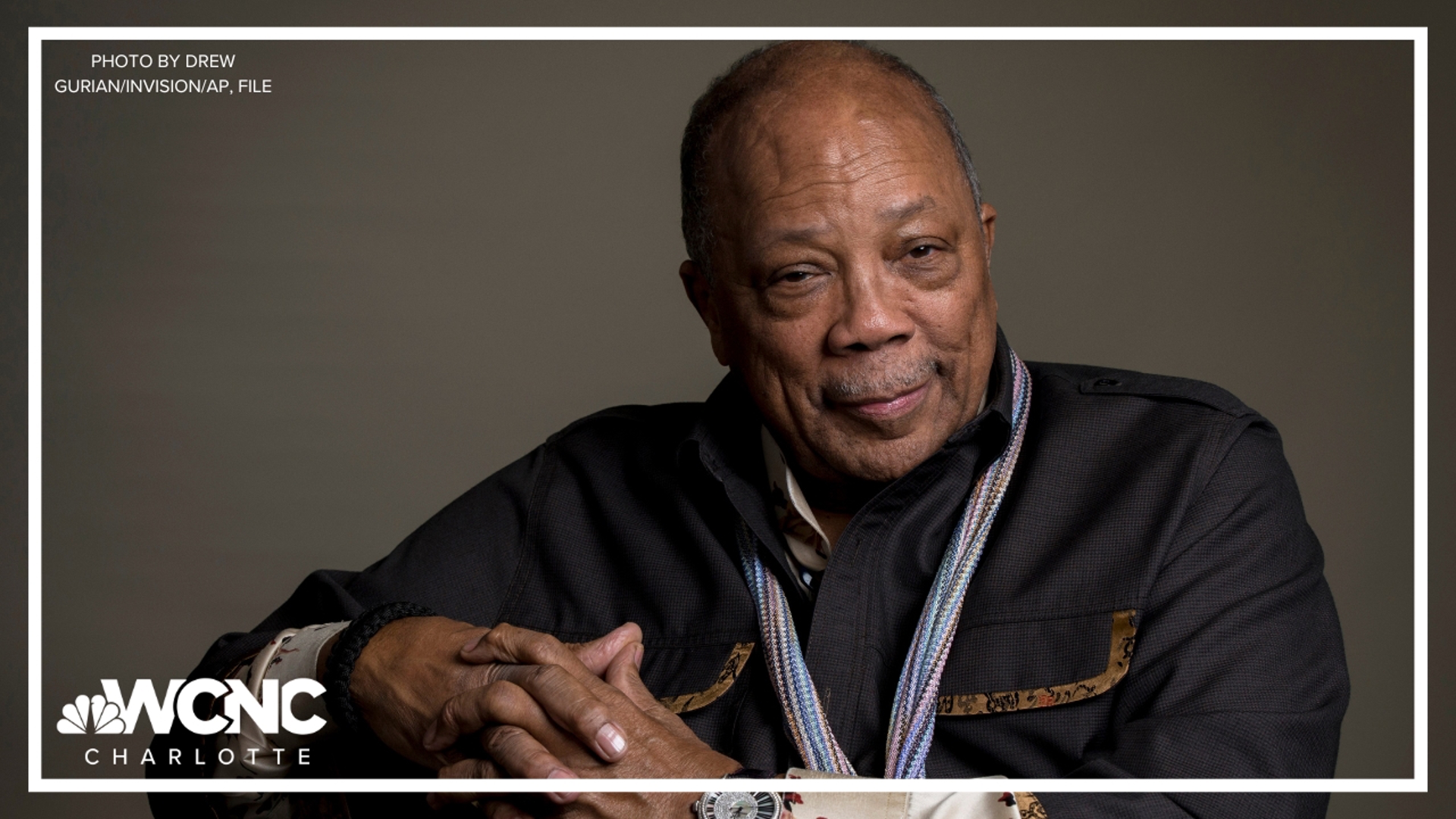This story originally appeared on The Tennessean on Aug. 18, 2016.
Thirteen years after country music blacklisted the top-selling female band in American history, the Dixie Chicks are returning to the town that made them famous.
And when the trio performs Wednesday night at Nashville's sold-out Bridgestone Arena, they'll do so unapologetically — with a show featuring the same brand of biting political commentary that most country artists avoid at all costs, and that forced the Chicks into exile more than a decade ago.
“They have a bitter feeling about Nashville,” said Paul Worley, record executive and the Dixie Chicks' former producer. “People in the industry may have turned their back on them, but Nashville did not. And they are going to find out when they play here that Nashville has always been here for them and will always be here for them.”
Photos: CMA Awards 50
That thousands of fans have shelled out money to hear past hits like “Wide Open Spaces” and “Cowboy Take Me Away" suggests that, while the band's controversial ways haven't changed, country music fans have.
A single flippant remark about then-President George W. Bush derailed the careers of Natalie Maines and sisters Martie Maguire and Emily Strayer in 2003, at a time when they were at the apex of country music.
Yet on Wednesday, if previous shows on the Dixie Chicks' largely sold-out 55-city tour are any indication, they will perform in front of a giant image of Republican presidential nominee Donald Trump — embellished with horns sprouting from his head and a devilish goatee scribbled on his chin.
"I get banned for not liking Bush and now Trump can practically put a hit out on Hillary and he's still all over country radio!" Maines tweeted last week. "Hypocrites!"
Texas to Nashville
Long before their rise as the outspoken darlings of country music, and their eventual fall from grace, the Dixie Chicks burst onto the country music scene in the late 1980s as a fringe-wearing cowgirl swing band — then fronted by Laura Lynch, not Maines — gigging around Texas.
Though they were undeniably talented and had built up a regional following, the band's sound was far outside the genre's polished mainstream. Even so, they were squarely on the radar of Nashville's Music Row. By the early 1990s, word had traveled to Worley — then an executive vice president at Sony Music Nashville — and one of his executives, Blake Chancey, that Lynch was leaving the trio.
With Lynch's departure, the sisters were looking for a shift toward greater commercial appeal. Worley and Chancey saw potential.
Meanwhile, famed steel guitarist and frequent Chicks collaborator Lloyd Maines suggested the Chicks try out his daughter Natalie. When she met with sisters Martie and Emily, the women jelled instantly.
Chancey brought a demo of Maines singing for the group back to Nashville and in 1995, the two men signed the new Dixie Chicks, brought them to Music City and co-produced the trio's first two albums.
“Everybody in Nashville was like, ‘Are you crazy? You signed a trio of girls? And one of them plays a banjo?’ ” Worley said. “It was so good, you couldn’t deny it, and they played with such joy and professionalism, and they were like nothing that had ever hit this town. They were bulletproof.”
The women found success quickly with “I Can Love You Better,” “Wide Open Spaces” and “There’s Your Trouble” — songs that propelled their debut album to more than 12 million sales. Their follow-up, also produced by Worley, sold 10 million copies.
“It was just very different,” Grammy award-winning country singer Miranda Lambert said of the Dixie Chicks' music. “It made you proud to be a girl. You wanted to be a Dixie Chick. Everybody wanted to be a Dixie Chick. I still do."
Media firestorm
Relationships started to sour between the Dixie Chicks and Sony Music Nashville leading up to the release of the trio’s third album, “Home.” In 2001, the women sued the label for unpaid royalties. Their acoustic “Home” wasn’t released until August 2002.
Seven months later, on March 10, 2003, the Dixie Chicks watched news coverage of the United States’ escalating tensions with Iraq as they were preparing to walk on stage in London. The trio lamented having to play a concert when their home country was headed for war, and for reasons they didn’t support.
At that moment, they were top of the country radio airplay charts with “Travelin’ Soldier,” a heartbreaking song about a young cadet who didn’t make it home from Vietnam. Maines thought when introducing the song it would be inappropriate to not acknowledge current events.
“Just so you know, we’re on the good side with y’all. We do not want this war, this violence …,” she said, before adding: “And we’re ashamed that the president of the United States is from Texas.”
That latter remark set off a media firestorm. When the American news media picked up Maines’ statement about the president, it was met with vitriol. Country radio, prompted by complaints from its conservative fan base, pulled “Travelin’ Soldier,” which quickly toppled from the charts.
Stations that previously had the Chicks' songs in heavy rotation quit playing them and hosted events in which the trio’s CDs were piled up and crushed with heavy machinery. The singers received death threats.
They never had another hit on country radio. Creative vindication came with 2006's "Taking the Long Way," which won Album of the Year and Best Country Album at the Grammy Awards, and its single "Not Ready to Make Nice" picked up trophies for Record of the Year and Best Country Performance by a Duo or Group with Vocal. The Rick Rubin-produced "Taking the Long Way" remains the trio's last album.
“The real tragedy is all the great music we will never hear because their momentum was stopped,” said Beverly Keel, chair of the recording industry department at Middle Tennessee State University. “It was the perfect storm of the time and the place and what she said."
Worley recalls thinking the scandal would blow over and said he still believes there’s something “fundamentally wrong” with the trio’s expulsion from country radio.
“This is the land of free speech and they were singled out and destroyed, systematically, by corporations that owned and controlled country radio,” he said.
'A tendency to eat our young'
Months after Maines' Bush remarks, John Grady was preparing to take the helm at Sony Music Nashville when he attended the CMT Music Awards in Nashville. When the Chicks won an award, the audience booed.
“Our industry has a tendency to eat our young,” he said. “As soon as we make a great big star, we try and figure out ways to cut them down. A lot of it comes from competition. It became very chic to bash the Dixie Chicks. It was the first time I had seen, witnessed or heard what I thought was hate in country music.”
The trio left Nashville lock, stock and barrel. Still signed with Sony, they based from the label’s New York offices. Once they were gone, they've never returned to Nashville full time. Six No. 1 hits, more than 20 million albums sold, according to Nielsen Music, and then poof.
“Nashville loved these women, Nashville signed these women, and Nashville made these women stars,” said author and country music historian Bob Oermann. “It was a shameful chapter that we allowed (the shunning) to happen, and you couldn’t blame the Chicks if they did feel betrayed.”
Whether or not they did, the packed arenas on their current tour offer a measure of validation of the Dixie Chicks, and their place in the genre that spurned them.
Ultimately, the episode will underline their legacy as artists who did not retreat in the face of criticism, contended Tracy Gershon, who handled A & R for the trio’s aptly named last album, “Taking the Long Way."
“So many artists would have backed down just to please country radio,” she said. “The fact is their beliefs were more important and they paid the price. Coming full circle, it just proves great music can last through that. If it’s a man’s world, you just have to be better. I think they were the embodiment of women’s power. They stood their ground and never apologized for who they are.”
Reach Cindy Watts at 615-664-2227 and on Twitter @CindyNWatts.
Dixie Chicks albums, hits
The Dixie Chicks sold 28 million albums, according to Nielsen Music, and charted six No. 1 songs on Billboard’s Hot Country Songs chart.
Dixie Chicks' No. 1 hits:
"There's Your Trouble"
"Wide Open Spaces"
"You Were Mine"
"Cowboy Take Me Away"
"Without You"
"Travelin' Soldier"
The Dixie Chicks albums:
1998: "Wide Open Spaces"
1999: "Fly"
2002: "Home"
2006: "Taking the Long Way"


